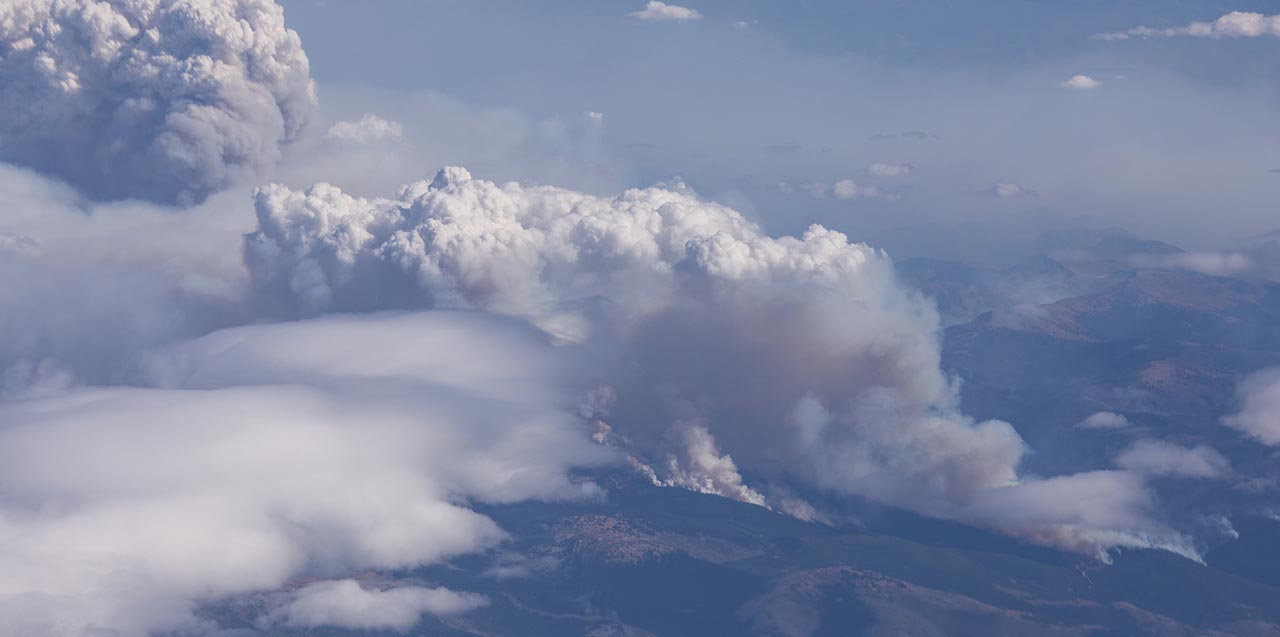Climate change is already affecting our health, even if we don't think about it much, says a University of Alberta public health expert.
"People think about climate change as only impacting those in the Arctic or on the coasts or in low-lying places, but what has become very clear is ... it's not just affecting certain areas or populations-it's already impacted every one of us," said Sherilee Harper, a professor with the U of A's School of Public Health.
-
RELATED: Edmonton, U of A team up to help citizens guide climate change action
-
RELATED: New program will help Fort McMurray students better manage PTSD following 2016 wildfires
Harper, a Canadian representative on the United Nations Intergovernmental Panel on Climate Change, studied the links between Earth's changing climate and human health as a lead author on the United Nations' Special Report on Climate Change.
In assessing scientific data from around the globe, she identified four major ways climate change affects human health and warns that the impacts are only going to worsen.
Heat waves
Extreme heat days have increased in number and severity worldwide, which brings health challenges like heat stroke and dehydration. While impacts vary by age, gender, location and socioeconomic factors, the elderly and those living in urban areas will experience the highest heat-related death rates in this century, she said.
One 2018 study showed elderly people suffered an increase of 220 million heat wave exposures in certain areas of the world, breaking the previous record of 209 million set in 2015. People with chronic conditions like diabetes, asthma, respiratory illness, kidney and heart disease can also expect their symptoms to be aggravated by high temperatures.
Wildfires
Rising temperatures mean drier forest conditions, resulting in more wildfires over the past 20 years, including in Alberta, Harper said. Wildfire smoke results in emergency room visits to treat respiratory and cardiovascular distress; environmental fallout like poor air, water quality and supply; and for people fleeing fires or fighting on the front lines, hazards like burns and post-traumatic stress syndrome.
Food quality
Extreme temperatures, flooding and rising carbon dioxide levels can affect food quality, safety and distribution and bump up the need for pesticides, Harper noted. Food-borne diseases pose a particular threat, because events like flooding and warming oceans can increase pathogen loads and lead to tainted shellfish.
"We have already seen increases in some types of food-borne disease outbreaks, and if the planet continues to warm up, we will continue to see that," she said.
Mental health
Catastrophes caused by climate change create anxiety "vicariously" through news coverage and images of destruction, Harper said.
"It causes uncertainty-what does it mean for my life and my future? And for the people experiencing it directly, there are serious implications. Having to be evacuated, dealing with property damage and other trauma-all of this impacts mental health." Post-traumatic stress syndrome, depression, aggression, survivor guilt and thoughts of suicide can also result.
Adaptation possible
Human adaptation to the impacts of climate change is possible, according to Harper-but only if greenhouse gas emissions are contained.
"Scientific data is consistently showing that we only have the ability to prevent these health impacts under a low-emission scenario; if we meet the Paris Agreement and the current federal government plan to go net zero by 2050.
"But if we continue with the status quo and increase our emissions, the health impacts outstrip our ability to manage them," she said.
Heat waves, for example, can be managed through public health measures like cooling centres and handing out water-to a certain point. More frequent heat waves pose a greater threat that will be harder to handle, Harper predicted.
"Research shows that we won't be able to prevent mortality because it will be too much, too often."
Ultimately, protecting human health means everyone bears responsibility for mitigating and adapting to climate change, she said.
"The decisions we make today and within the next 10 years can put us in a good position for the future, and that gives me hope-if we mobilize and do things right, we have a future where we can handle the impacts."
Individual choices
On an individual level, that means making daily choices to carpool to work, turn off lights, drive more fuel-efficient vehicles and eat locally grown food to help reduce the carbon footprint, along with common measures like staying indoors if air quality is poor.
"The most important action we can all take is to bring 'climate change' into our vocabulary more often," she said. "If there's an air quality statement issued that day, talk about what it means for your family. Bring it up at the dinner table or turn it into teachable moments for kids when talking about extreme weather-for instance, when they can't go outside to play because of smoke from a forest fire.
"That raises awareness and accountability, and then people start understanding that climate change is happening to them, how massive the issue is and why youths around the world are protesting."
